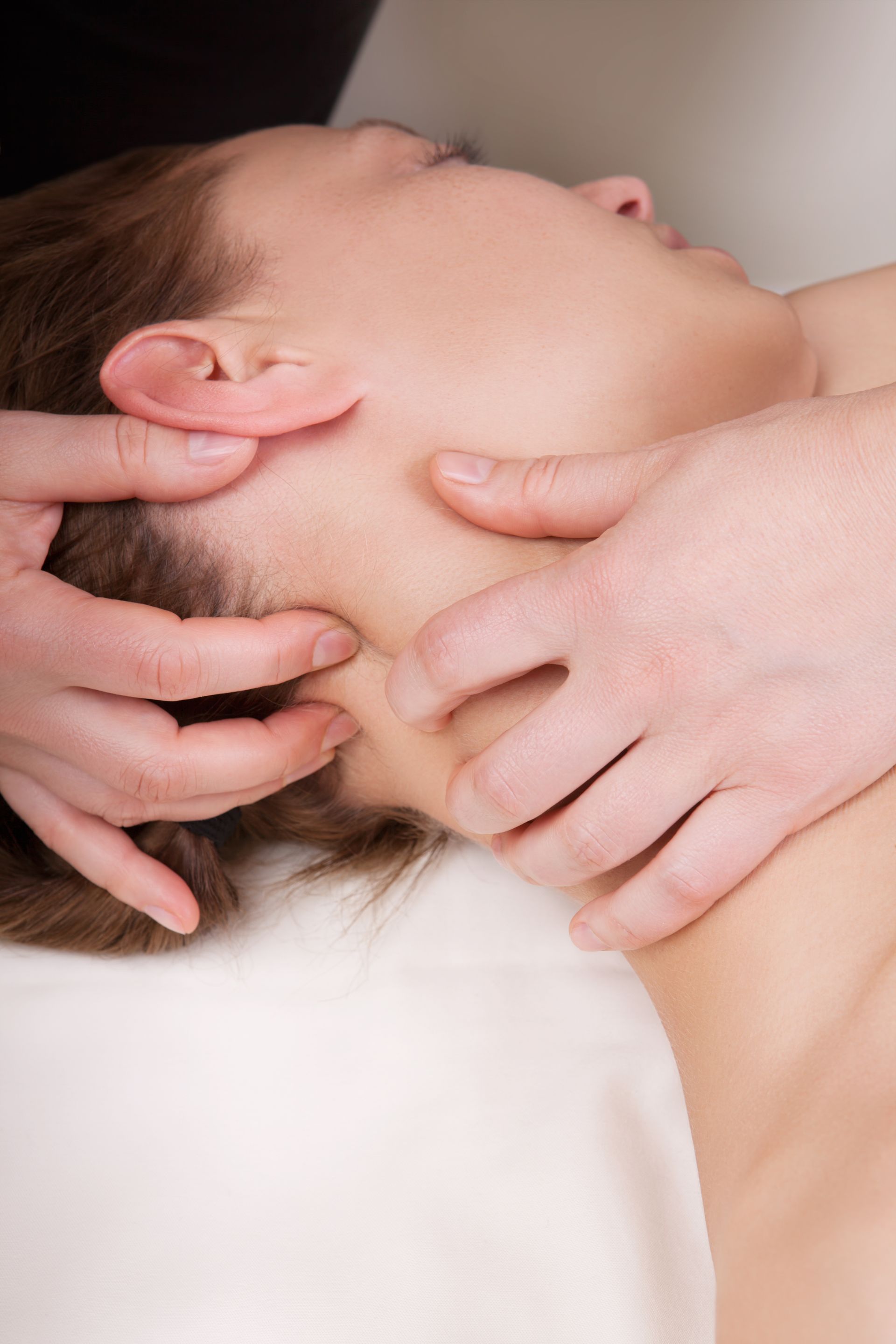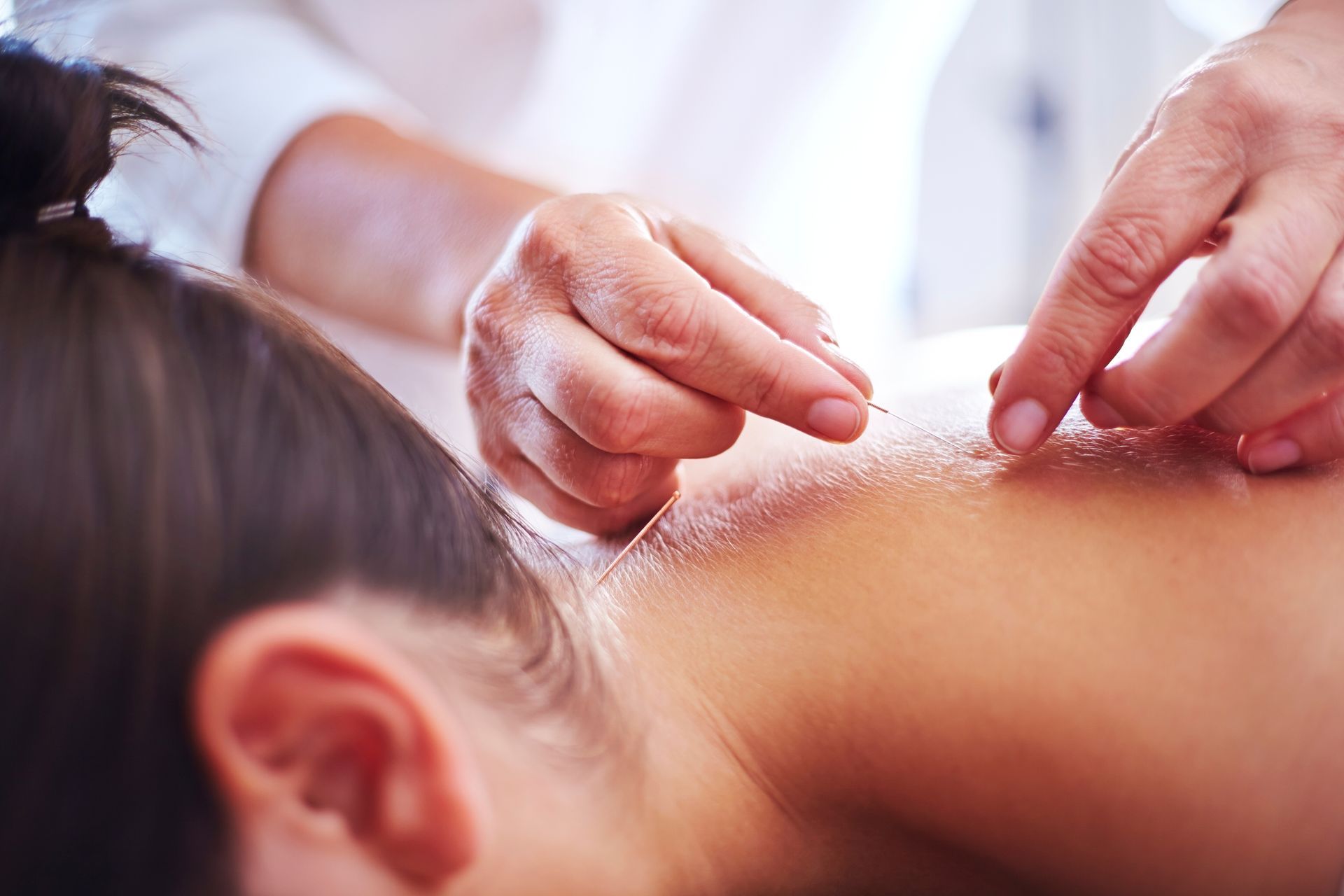The Effects of Acupuncture on IVF Success Rates

For many couples struggling with infertility, their journey to a healthy pregnancy leads through in vitro fertilization (IVF). During this delicate process when you and your RE are working to balance your hormones and get the timing just right for successful implantation, there are also opposing forces at work that can upset that delicate fertility balance you’re trying to achieve—stress, anxiety, and uncertainty about the future are some of the biggest problems. At Pulling Down the Moon, we provide supportive holistic fertility services that can help ease your mind and relax your body, so they align to increase your chances of a successful IVF pregnancy. One of the most supportive and research-backed therapies includes acupuncture for IVF patients, which can improve your chances of initiating and sustaining a healthy pregnancy.
Acupuncture IVF Research
In addition to thousands of years of documentation from practical applications in Traditional Chinese Medicine (TCM), an impressive amount of modern-day research has established strong links showing the effectiveness of acupuncture for IVF success rates.
- A collection of studies found that clinical pregnancy rates increased between 28 and 32 percent in women who received acupuncture for IVF. The same study found that the acupuncture IVF cohort had a nearly 30 percent increase in live birth rates compared to those who did not receive acupuncture.¹
- Additionally, the same study indicated a nearly 43 percent decline in miscarriage rates for women who received acupuncture for IVF.
In addition to these findings, another study delved into the timing of acupuncture and IVF. This particular study discovered that receiving fertility acupuncture shortly before embryo transfer (actually within the 24 hour period before and after embryo transfer) increased IVF success rates too.²
How Does Acupuncture Help Improve IVF?
While it’s clear that acupuncture can play a supportive role in enhancing the success rates of
IVF (and
IUI as well), it’s just as important to understand
how these mechanisms work to improve fertility outcomes. Research has pinpointed several areas where acupuncture seems to support a successful IUI or IVF process³:
- First, acupuncture appears to improve blood circulation to both the ovaries and the uterus, which can help egg health and implantation success.
- Second, acupuncture also balances important hormones that can support and stimulate fertility in both men and women. Specifically, it releases neuropeptides, oxytocin, serotonin, and dopamine—your body’s stress-relief, feel-good hormones—while dialing down the stress hormone cortisol, which can interfere with pregnancy-supporting hormones.
- The ability of acupuncture to regulate hormones can assist in the balance of hypothalamus-pituitary-ovarian connections that favorably balance menstrual cycles and ovulation.
- Also, acupuncture also seems to provide relief for insulin resistance associated with polycystic ovary syndrome (PCOS), also improving fertility rates.
- Additional research indicates that acupuncture can also improve male fertility, specifically improving sperm count, quality, and motility, all of which are important factors contributing to both IUI and IVF cycles.⁴
- Finally, acupuncture also seems to help reduce chronic inflammation.⁵ Women struggling with the hormonal and emotional stresses associated with endometriosis, PCOS, obesity, age, and immune system imbalances can try acupuncture as a way to relieve chronic inflammation⁶, calm the nervous system, and improve their chances of conception.

IVF Cycle in Conjunction with Acupuncture
The IVF cycle is a multistep process, and acupuncture to improve your chances of successful conception, pregnancy, and birth is also a multistep process. Because each couple has a different fertility equation with different challenges, acupuncture treatment needs to be tailored specifically to address those needs. Typically, the benefits of acupuncture for IVF increase as the dosage (number of acupuncture sessions) increases—the same way that the benefits of exercise increase the more often you do it. The timing is also important. Our certified, licensed fertility acupuncturists are extremely experienced with each step in the acupuncture IVF process, and these are their recommendations for each step:
1. Retrieval Cycle
During the retrieval cycle, your RE will remove eggs from your ovaries after your last hormone injection (about 36 hours afterward) to start the incubation process. Ideally, acupuncture sessions to boost ovarian reserve and egg health should start 12 to 4 weeks before this cycle. This is also a good time for men to have acupuncture sessions to improve the quality of their sperm.
2. Frozen Embryo Transfer
During this phase, it is important to improve uterine blood circulation, reduce inflammation, and stave off stress. We recommend about 8 to 11 acupuncture sessions scheduled over the 4 weeks before embryo transfer, including a session just before the procedure.
3. Natural Cycle IVF or Mini-Stim IVF
Acupuncture to regulate your hormones and reduce stress before a potential conception should, again, be administered about 4 weeks before your natural cycle begins. This can help optimize the environment for egg development and uterine health.
Finding a Reputable, Licensed Acupuncturist

When choosing an acupuncturist for any health concern, and especially for the delicate process of IVF, it’s important to look at their qualifications and certifications. Pulling Down the Moon works with the top
board-certified fertility acupuncturists in Chicago. Board certification and licensing ensure that an acupuncturist is extensively trained in the practice and regularly updates training and education to reflect the latest science in the field. Our amazing and compassionate fertility acupuncturists all have extensive education and decades of experience in the field of fertility-focused TCM and integrative and complementary therapies.
Acupuncture IVF Support in Chicago
If you are working your way from infertility to fertility, the research shows that acupuncture may be an incredibly supportive holistic treatment to help you on your journey. In addition to acupuncture IVF support, Pulling Down the Moon has a broad palette of coordinated holistic fertility therapies including
fertility nutrition,
fertility yoga, and
fertility massage, which all work together to help improve your fertility across the board. Most importantly, we've gathered a wonderfully supportive and understanding community that understands what you’re going through. Reach out and
schedule an appointment with us today.
References
1. Hullender Rubin, L. E. (2019). Point of Influence: What is the Role of Acupuncture in In Vitro Fertilization Outcomes? Medical Acupuncture, 31(6), 329–333. https://doi.org/10.1089/acu.2019.1392
2.. Samsami Dehghani, A., Homayouni, K., Kanannejad, Z., & Kanannejad, Z. (2020). The effect of acupuncture on the day of embryo transfer on the in vitro fertilization outcomes: An RCT. International Journal of Reproductive BioMedicine (IJRM). https://doi.org/10.18502/ijrm.v18i3.6719
3. Hullender Rubin, L. E. (2019). Point of Influence: What is the Role of Acupuncture in In Vitro Fertilization Outcomes? Medical Acupuncture, 31(6), 329–333. https://doi.org/10.1089/acu.2019.1392
4. Feng, J., He, H., Wang, Y., Zhang, X., Zhang, X., Zhang, T., Zhu, M., Wu, X., & Zhang, Y. (2022). The efficacy and mechanism of acupuncture in the treatment of male infertility: A literature review. Frontiers in Endocrinology, 13. https://doi.org/10.3389/fendo.2022.1009537
5. Li, N., Guo, Y., Gong, Y., Zhang, Y., Fan, W., Yao, K., Chen, Z., Dou, B., Lin, X., Chen, B., Chen, Z., Xu, Z., & Lyu, Z. (2021). The Anti-Inflammatory Actions and Mechanisms of Acupuncture from Acupoint to Target Organs via Neuro-Immune Regulation. Journal of Inflammation Research, 14, 7191–7224. https://doi.org/10.2147/JIR.S341581
6. Orisaka, M., Mizutani, T., Miyazaki, Y., Shirafuji, A., Tamamura, C., Fujita, M., Tsuyoshi, H., & Yoshida, Y. (2023). Chronic low-grade inflammation and ovarian dysfunction in women with polycystic ovarian syndrome, endometriosis, and aging. Frontiers in Endocrinology, 14, 1324429. https://doi.org/10.3389/fendo.2023.1324429
Meet Christine Davis
View Profile: Director of Acupuncture at Pulling Down the Moon
Christine is a Licensed Acupuncturist and serves as the Acupuncture Director at Pulling Down the Moon, a fertility-focused integrative medicine center in Chicago. With a Master of Science in Oriental Medicine and a Bachelor of Science in Nutrition, she has been a Board Certified practicing acupuncturist since 2004. Christine's diverse training includes studies in Chinese Tai Ji Quan and Gong Fu in China, as well as Chinese herbology at the Beijing University of Traditional Medicine. A Certified Hatha Yoga Instructor, she emphasizes achieving lasting wellness through traditional methods of moderation and balance. Christine has supported numerous couples on their fertility journey, emphasizing the importance of addressing both the body and the mind. Beyond her professional endeavors, she enjoys family time, music, walks in the Chicago Botanic Garden, and reading.
Share on Social
Discuss With Us
Our Latest Resources




